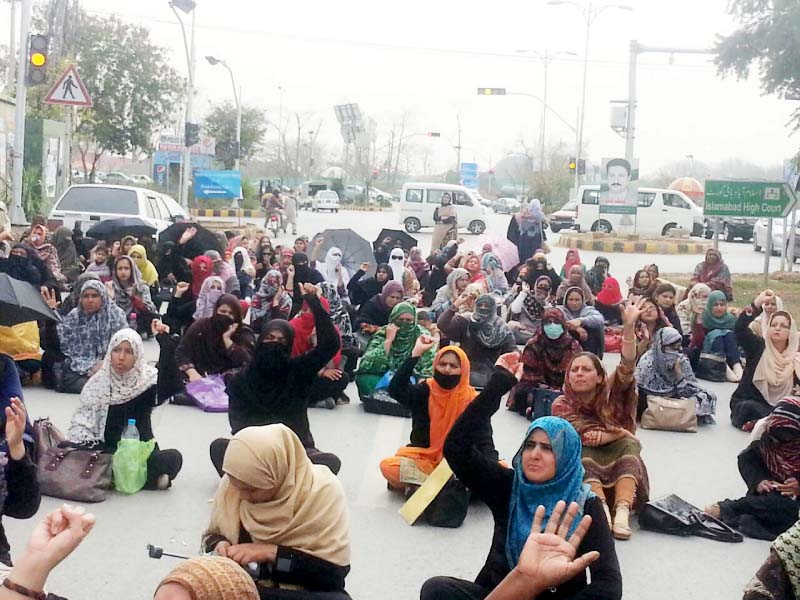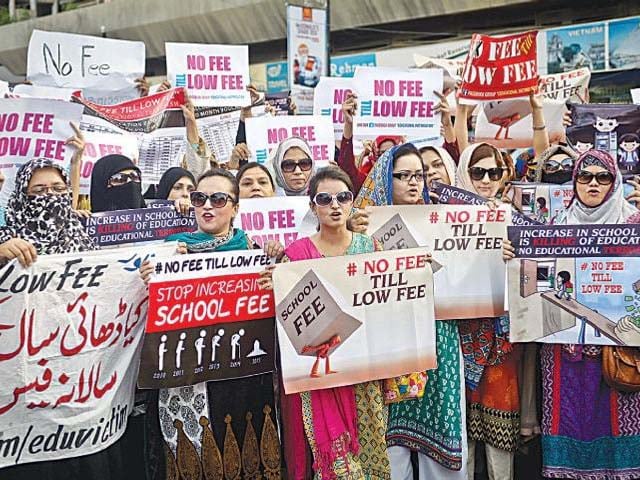
The Rachel Canning case and why Pakistani parents should be worried
Western values have a deep impact on our children and this case just showed us that we, as parents, need to be careful
Whoever is raising children in this present age can only applaud the decision taken by the judge in the strange New Jersey case of 18-year-old Rachel Canning suing her parents for kicking her out of the house. To add insult to injury, the girl demanded her parents, Sean and Elizabeth Canning, pay for the private high school that she is attending, her current living expenses, and some of her upcoming college tuition.
The judge’s ruling was akin to music to a lot of parents’ ears that the parents were not liable for either Rachel’s current living expenses or her legal fees, which is now near $15,000 and likely to get much higher as the case proceeds. There will be another hearing on April 22 to decide whether or not the teen could get any money out of the college fund created by the Cannings for Rachel.
 Rachel Canning in court with John Inglesino, her friend's father, who financed her suit against her parents. Photo: Reuters
Rachel Canning in court with John Inglesino, her friend's father, who financed her suit against her parents. Photo: ReutersA majority of American families create these college funds specifically for their children’s education when they are very young. Frankly, if there is any justice on earth, all demands made by the teen should be denied for a number of reasons.
First of all, being 18-years-old, Rachel Canning is legally an adult and if she thinks she is old enough to take this ‘crude’ decision against the parents, then she is old enough to steer her own boat too after getting kicked out.
 Sean and Elizabeth Canning cry during a hearing in a lawsuit brought by their daughter Rachel Canning on March 4, 2014. Photo: Reuters
Sean and Elizabeth Canning cry during a hearing in a lawsuit brought by their daughter Rachel Canning on March 4, 2014. Photo: ReutersWhy should the parents be liable for her expenses after she has pushed them to a point where they have to take this step?
Secondly, the judge’s leniency in the matter will only make things worse for the American family system that is already going haywire; the kids are out of control and the term ‘family values’ has become a thing of the past. Just to mention here, the parents in this case were still kind enough to keep her on their family insurance policy.
I think even that is a huge favour, given the American medical system where the kid would have had a tough time in case she got sick or needed medical attention. Frankly, they should have let her fend for herself entirely.
 Rachel Canning (R) sits with her friend Jaime Inglesino during the hearing. Photo: Reuters
Rachel Canning (R) sits with her friend Jaime Inglesino during the hearing. Photo: ReutersAnother disadvantage for any leniency in this case is that it would have given other teens her age, or even younger, in the US the license to really start dominating their parents. Consequently, the parents would be in a constant mental anguish over the legal repercussions associated with trying to keep their children in order. Not only this, they would also remain in continual stress of the potential financial crisis they could land into if their child pulls a fast one on them.
In other words, this list could go on and on. The bottom line is that parenting decisions need to be left between the parents and the child. Courts and judges need to stay out of it.
During the hearing, when Judge Peter Bogaard said that he was shocked by the language that Rachel had used for addressing her parents verbally and in her written communication, the teen’s attorney retorted that the mother had used no better language for her daughter.
Question is; isn’t there a difference between the parent and a child?
Yes, it is wrong to raise children with aggression and abuse but that still does not give kids the right to take over the role of parenting. Also, if abusive language was being used, it only proves that this family was in a psychological crisis and needed psychiatric or psychological counselling.
Needless to say, this is a story of an alarmingly huge number of families in the US. But it still does not justify the intervention of the court in family and home life.
Why do I, being a Pakistani parent, feel so strongly about this entire issue?
Because the fact of the matter is, Western values have eroded our social fabric more heavily then we care to realise. As a result of this, our children take a very keen interest in what their counterparts are doing around the world.
Thankfully, however, we have not reached a stage where our children become insolent to a point where we have to kick them out of the house. Even if this does happen, our court system, good or bad, won’t allow them to sue the parents. We should be thankful enough to have the support of a large number of family and friends who are quick to come to the rescue to help patch up things between our kids and ourselves should such a situation arise.
Still, our children take the cue from the West more than we realise. We may be safe to some extent living in Pakistan but for oversees Pakistanis, a judge ruling in favour of this teen would have been nothing short of a disaster.
 Rachel Canning talks to her father Sean Canning during the court case. Photo: Reuters
Rachel Canning talks to her father Sean Canning during the court case. Photo: ReutersA huge number of Pakistani parents in the US have worked their life to the bone to provide a good education and good life for their children. As it is, they are having a tough time maintaining family values at home, living in a society that clashes with the basic ideals of family relationships.
Imagine their children getting the legal signal to sue their parents for being parents and for enforcing parental rules and regulations. This was a very good signal to children that if they cannot behave, then they have to face the consequences. If there is tension between the parents and their children, they need to go to a psychologist, not to a courtroom.
Let’s see what the judge rules in the second part of the hearing. I hope this ruling is not in favour of the teen either. I don’t know about the teen but it will certainly be a victory for parents around the world.




COMMENTS (68)
Comments are moderated and generally will be posted if they are on-topic and not abusive.
For more information, please see our Comments FAQ